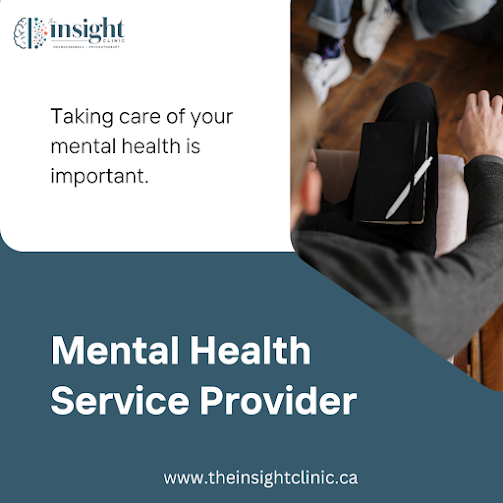Top Benefits of Neurofeedback Training Programs for Mental Wellness
Neurofeedback training programs are gaining popularity as a non-invasive method to improve mental wellness. Whether you're seeking to enhance cognitive function, reduce stress, or manage mental health challenges, neurofeedback could be the solution you’ve been looking for. This brain training technique offers numerous benefits that can help individuals achieve optimal mental health.
What is Neurofeedback?
Neurofeedback, also known as EEG biofeedback, is a technique that involves monitoring brainwave activity and providing real-time feedback to help individuals regulate their brain function. During a neurofeedback session, sensors are placed on the scalp to measure brainwave patterns, and the feedback is given through auditory or visual signals. Over time, the brain learns to adjust its activity, improving overall mental function.
1. Improves Focus and Concentration
One of the most notable benefits of neurofeedback training is its ability to enhance focus and concentration. Whether you're struggling to stay on task at work, school, or home, neurofeedback helps train your brain to maintain optimal levels of attention. This can lead to improved productivity and performance, both in everyday life and in demanding environments.
2. Reduces Anxiety and Stress
Many individuals turn to neurofeedback training to manage anxiety and stress. The training helps regulate brainwave activity associated with stress responses, promoting a calm and relaxed state. By learning to control brainwave patterns, individuals can gain better control over their emotional responses, which is particularly useful for those with anxiety disorders or high stress levels.
3. Enhances Emotional Regulation
Neurofeedback programs also offer benefits for emotional regulation. By training the brain to maintain balanced brainwave patterns, individuals can develop a greater ability to control emotions, reduce impulsivity, and improve mood stability. This can be especially helpful for people dealing with mood disorders such as depression, ADHD, or post-traumatic stress disorder (PTSD).
4. Improves Sleep Quality
Many individuals experience poor sleep quality due to overactive or disorganized brainwaves. Neurofeedback helps train the brain to relax and enter a more restful state, improving sleep quality. By promoting healthy brainwave activity, neurofeedback helps individuals fall asleep more easily and achieve deeper, more restorative sleep cycles. This is beneficial for those suffering from insomnia, sleep apnea, or other sleep disturbances.
5. Boosts Cognitive Function and Memory
Neurofeedback has been shown to improve cognitive function, including memory, learning, and problem-solving skills. By optimizing brainwave patterns, neurofeedback helps the brain operate more efficiently, enhancing mental clarity and retention. Whether you're looking to improve academic performance, career skills, or cognitive longevity, neurofeedback can offer significant benefits for mental sharpness.
6. Supports Mental Health Recovery
For individuals recovering from mental health conditions, neurofeedback can be an invaluable tool. It can aid in the rehabilitation of brain functions impacted by trauma, addiction, or mental health disorders. Neurofeedback offers a holistic and drug-free approach to recovery, helping individuals strengthen the brain's natural ability to heal and function optimally.
7. Non-Invasive and Drug-Free
One of the most appealing aspects of neurofeedback training is that it’s non-invasive and does not require medication. For those seeking an alternative to pharmaceutical treatments, neurofeedback provides a safe and natural option to improve mental wellness. The process involves no surgery or invasive procedures, making it a convenient and appealing choice for many.
8. Personalized Training for Individual Needs
Every person’s brain is unique, and neurofeedback training programs are tailored to meet individual needs. Through an initial brain mapping session, practitioners can identify areas that require attention and customize the training to target specific goals, such as enhancing focus, reducing anxiety, or improving sleep. This personalized approach ensures that each session addresses the client’s specific challenges and goals.
Conclusion
Neurofeedback training programs offer a wide range of benefits for mental wellness, from improving focus and concentration to reducing anxiety and stress. Whether you’re looking to boost cognitive function, manage emotional regulation, or support mental health recovery, neurofeedback presents a holistic and effective approach to achieving optimal brain health. If you're interested in enhancing your mental wellness, consider exploring the benefits of neurofeedback and how it can positively impact your life.
Ready to try neurofeedback for yourself? Contact a qualified practitioner today to learn how this cutting-edge technique can transform your mental wellness.




Comments
Post a Comment